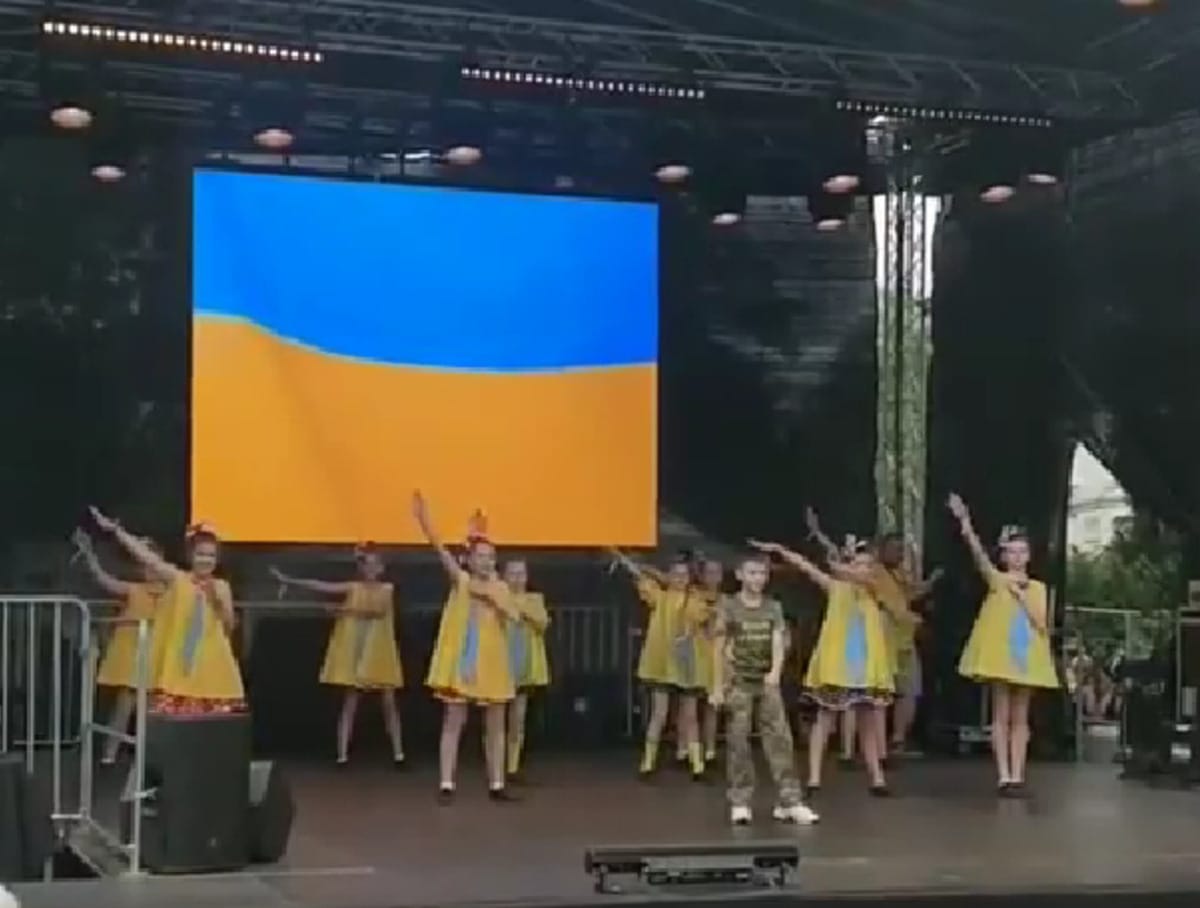A video of children singing a song in German under the Ukrainian flag went viral on social networks. The recording is accompanied by an explanation that the song is the unofficial anthem of the Luftwaffe. We decided to check whether the children really sang the Nazi German Air Force anthem.
The first entry with a video and mention of the Luftwaffe appeared on September 22 in the Telegram channel “UralDaily-RezerV" Then the video was published on September 23 by the Telegram channel “Ukrainian format” and received 634,900 views. After this, the video with corresponding comments went viral on social networks - it can be found in “VKontakte", LiveJournal, on the website of a blogger known for his support of the invasion of Ukraine Yuri Podolyaki and on YouTube.
The video itself is truthful: it is a fragment from a performance by a Ukrainian children's choir at festival in Bergedorf (one of the districts of Hamburg). On stage is the dance ensemble “Prolisok” from the Ukrainian city of Dubno, Rivne region. A report on the arrival of children from Ukraine to Germany is also available in Facebook events.

The main question is what song the children are singing from the stage. The soloist of the children's ensemble performs the first lines in Ukrainian, then continues in German. This melody is often found in the Russian segment of YouTube precisely as the “unofficial anthem of the Luftwaffe.” Moreover, it has been called that for quite a long time - as, for example, on this records 2012, where the song is superimposed on a video sequence with German aviation. Outside Russia, such an attribution could not be found.
At the beginning of the video it is said that this was originally an ancient Breton song, which was dubbed into German in 1939 and became the unofficial anthem of Luftwaffe pilots. But there are several mistakes here.
The song actually appeared in the French province of Brittany, but it is difficult to call it ancient. It was composed in 1929, on the last day of the harvest, by two teenagers - Jean Bernard and Jean-Marie Prima. The history of the creation and dissemination of the song, called Son ar chistr (in Breton "Song of Cider"), well studied, since over the years it has become a cultural property of Brittany.
At first the song was performed in the village where the teenagers lived, then it began to spread throughout Brittany. Researchers of Breton folklore discovered the earliest version of Son ar chistr in 1940 in the city of Languidic in the south of the region; in 1949 it was performed at a song competition in Quimper (this is also Brittany). But until a certain time it was exclusively an oral heritage. The song was first recorded (both words and music) in 1951 by Paulig Montjarre, a collector of Breton folklore and an activist in the national movement. This version is still performed by Breton folk groups.
Despite its popularity within the province, the song about cider did not appear outside of Brittany for a long time. A surge in popularity occurred in 1970, when it was played on the harp by a folk musician Alan Stivell and included it in his album Reflets.
After this, the song began to be performed in different languages. The group Bots from the Netherlands made it one of their main hits. Bots first sang it in Dutch in 1976 under the title Zeven dagen lang ("Seven Days"):
And in 1980, they performed for the first time an old Breton song in German, in this version it is called Sieben Tage lang (“Seven Days”) or, according to the first line, Was wollen wir trinken (“What we want to drink”).
Subsequently, the song was translated into many languages. Another famous version of the words to this melody belongs to a group from the GDR Oktoberklub, and this is a rare case when Breton music is accompanied by politicized text about workers' solidarity. And in the 1990s, the melody was again revived by the German group Scooter in the song How Much Is The Fish?, making it a worldwide super hit.
Thus, the first translation of a Breton song about cider into German was made in 1980, and for some reason this version of the performance imposed on Luftwaffe newsreels and accompanied by a false caption about the unofficial Luftwaffe anthem. Whether this was an honest mistake or a malicious fake is not entirely clear. But no confirmation or logical explanation for the existence of a song in the Breton language as even an unofficial anthem of the Luftwaffe could be found.
Cover photo: screenshot from video
Not true
If you find a spelling or grammatical error, please let us know by highlighting the error text and clicking Ctrl+Enter.






